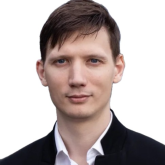2 PhD Positions focused on particle- and contact-models for steel-making processes
We are seeking motivated and talented individuals for two fully-funded PhD positions focused on particle- and contact-models for steel-making processes. This involves developing, calibrating, testing, and making the results available in open-source.
The Project
The projects’ goal is to create versatile basic models that can be used in larger scale models to model optimal material composition and find better process parameters to produce the new green steel of the future. The project results will help to reduce energy and material wastage by providing a more solid foundation for models used to develop new processes.
The two PhD projects are part of a wider consortium: link
General: Within the Production theme, pellets take a basic role at the start of many processes and understanding them better, their material properties as well as the variations thereof, is of ultimate importance for better, cleaner and greener production. This includes the major long-term goal of developing predictive numerical models, i.e. the digital twin, to be used for process development and optimisation. The micro-ingredient are the particles/pellets and their contacts, the main subject of the project(s). During preparation and high-temperature processing, this includes also micro-mechanics like melting and chemical reactions. Every larger scale elementary process (e.g. REF or DRI) model needs this as basic input, as will be developed and tested on the pellet or coarse grain level of a few pellets, to facilitate the larger scale modeling approaches in the consortium.
This is a joint project between the University of Twente and Tata Steel, combining expertise from fundamental science, granular material modeling, software development, calibration, machine learning, and particulate processes with the applied, industrial experience on metallurgy and steel-making processes.
You will work closely together with the other PhD at UTwente, and with several PhDs from TUDelft and TU-Eindhoven, who will be responsible for developing the larger scale model environment, while you will focus on developing the fundamental basic contact- and particle-models, with physical properties (like mechanics, sintering/melting, and chemical reactions) to be accounted for. Together, you will work on creating a comprehensive virtual twin for basic ingredients of these processes, namely pellets and scrap. Supporting this position is an academic team consisting of two PhD supervisors as well as additional academic staff members with expertise that covers particle modeling, programming and basic experimentation, complemented e.g. by partners at Tata Steel with their vast expertise on steel-making, metallurgy, etc.
Information and application
Are you interested in this position? Please send your application via the 'Apply now' button below before January 21, 2025 and include:
* A cover letter (1 to maximum 2 pages A4), emphasizing your specific interest, qualifications, and motivations to apply for this position.
* A Curriculum Vitae, including a list of all courses attended and grades obtained, and, if applicable, a list of publications and references.
* An IELTS-test, Internet TOEFL test (TOEFL-iBT), or a Cambridge CAE-C (CPE). Applicants with a non-Dutch qualification and who have not had secondary and tertiary education in English can only be admitted with an IELTS-test showing a total band score of at least 6.5, internet. TOEFL test (TOEFL-iBT) showing a score of at least 90, or a Cambridge CAE-C (CPE).
For more information regarding this position, you are welcome to contact Stefan Luding (s.luding@utwente.nl)
The first (online) job interviews will take place on the 29th, 30th, or 31st of January 2025.
About the organisation
The Faculty of Engineering Technology (ET) engages in education and research of Mechanical Engineering, Civil Engineering and Industrial Design Engineering. We enable society and industry to innovate and create value using efficient, solid and sustainable technology. We are part of a ‘people-first' university of technology, taking our place as an internationally leading center for smart production, processes and devices in five domains: Health Technology, Maintenance, Smart Regions, Smart Industry and Sustainable Resources. Our faculty is home to about 2,900 Bachelor's and Master's students, 550 employees and 150 PhD candidates. Our educational and research programmes are closely connected with UT research institutes Mesa+ Institute, TechMed Center and Digital Society Institute.



